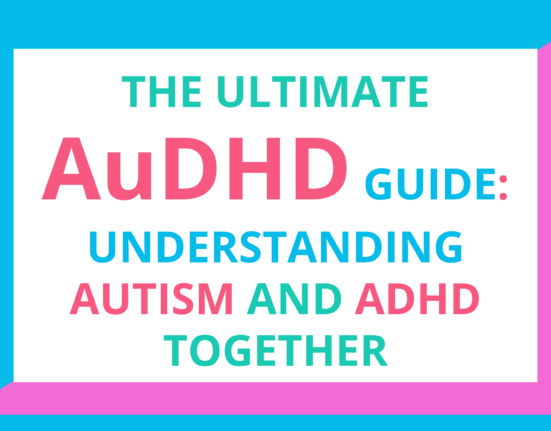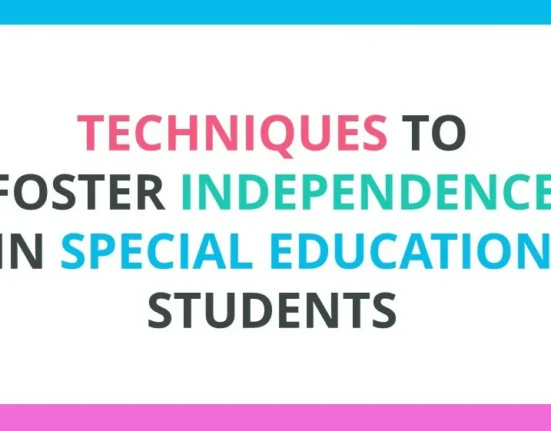Teaching adults with Special Education Needs (SEN) is a unique and rewarding challenge. Unlike children, adult learners often have a complex array of responsibilities and lived experiences that impact their learning journey. This guide provides a detailed look at the strategies, challenges, and key considerations in teaching this diverse group.
Table of Contents
1. Understanding Special Education Needs in Adults
What Are Special Education Needs?
Special Education Needs in adults encompass a wide range of disabilities, including cognitive impairments, physical limitations, learning disabilities, and emotional or psychological challenges.
Why Tailored Education Matters
Customized learning experiences are crucial for adults with SEN. Tailored education considers the specific needs of each learner, ensuring that they receive the support necessary to achieve their personal and educational goals.

2. Overcoming Challenges in Teaching Adults with SEN
Identifying Learning Disabilities
Detecting specific learning disabilities in adults can be complex, especially when they have developed coping mechanisms. Accurate identification through formal assessments and observations is key to providing effective support.
Addressing Cognitive Barriers
Cognitive barriers such as memory deficits and concentration difficulties require specialized teaching techniques. Breaking down information into manageable chunks and using repetition can help.
Emotional and Psychological Considerations
Creating a supportive environment is essential for learners with emotional or psychological challenges. Positive reinforcement and opportunities for success can build confidence and reduce anxiety.
3. Effective Strategies for Teaching Adults with SEN
Personalized Learning Plans
A personalized learning plan tailors education to the individual’s strengths, weaknesses, interests, and goals, helping them stay motivated and track their progress.
Incorporating Technology
Technology offers significant benefits, from educational apps to assistive devices. These tools can enhance engagement and provide flexible learning opportunities.
Multi-Sensory Teaching Methods
Engaging multiple senses through visual, auditory, and tactile elements can improve retention and make learning more enjoyable for adults with SEN.
4. Creating an Inclusive Learning Environment
Adapting Physical Spaces
Physical accessibility is crucial. This includes ensuring spaces are equipped with ramps, ergonomic furniture, and accessible materials.
Promoting Social Interaction
Encouraging collaboration and peer support fosters social skills and helps build relationships, enhancing the overall learning experience.
5. Importance of Communication in Special Education
Effective Communication Techniques
Clear and direct communication is vital. Simplifying language, using visual aids, and employing alternative methods like sign language can improve understanding.
Building Trust and Rapport
Establishing trust is key to effective teaching. Respect for learners’ experiences and consistent support helps build a positive learning environment.
6. The Role of Family and Community Support
Engaging Family Members
Involving family in the educational process provides additional support and reinforcement of learning objectives at home.
Utilizing Community Resources
Community resources such as support groups and vocational training programs offer invaluable assistance and learning opportunities.
7. Assessing Progress and Providing Feedback
Tailored Assessment Strategies
Assessment methods should be flexible and focus on the learner’s individual goals. Portfolios and practical demonstrations may be more appropriate than traditional tests.
Providing Constructive Feedback
Feedback should be specific, positive, and focused on both strengths and areas for improvement, helping learners stay motivated and understand their progress.
8. Professional Development for Educators
Training and Resources
Ongoing professional development is essential for educators teaching adults with SEN. Workshops, courses, and access to tailored educational materials are crucial.
Continuous Learning and Adaptation
Educators must stay informed about new research and teaching methods to provide the best education for adults with SEN.
9. Leveraging Assistive Technology
Types of Assistive Technology
From communication devices to organizational software, various tools can support different learning needs.
Benefits of Digital Tools
Digital tools offer flexibility and engagement, allowing learners to study at their own pace and enhancing their overall educational experience.
10. Promoting Lifelong Learning
Encouraging Independent Learning
Teaching self-advocacy and providing access to resources helps adults with SEN become lifelong learners.
Fostering a Growth Mindset
A growth mindset encourages learners to persist despite challenges, emphasizing that abilities can develop through hard work.
11. Legal Considerations in Adult Special Education
Understanding Rights and Legislation
Educators must be aware of the legal rights of adults with SEN, including access to education and necessary accommodations.
Navigating the Educational System
Helping learners understand their rights and navigate the educational system is crucial for ensuring they receive appropriate support.
12. The Future of Special Education for Adults
Current Trends
Inclusion, technology, and personalized learning plans are at the forefront of special education trends.
Innovations in Teaching
New methods like virtual reality and adaptive learning platforms offer exciting possibilities for the future of special education.
Conclusion
Teaching adults with Special Education Needs requires adaptability, empathy, and a commitment to lifelong learning. By understanding their unique challenges and employing effective strategies, educators can make a profound impact on their learners’ lives, helping them achieve greater independence and fulfillment.
FAQs
What are Special Education Needs in adults?
Special Education Needs in adults can include various disabilities that impact learning and require tailored educational approaches.
How can technology support adult learners with SEN?
Technology provides flexible learning options, engages learners, and offers tools that cater to specific needs, enhancing the educational experience.
Why is lifelong learning important for adults with SEN?
Lifelong learning promotes independence, personal growth, and social inclusion, allowing adults with SEN to continue developing their skills and knowledge.
What legal rights do adults with SEN have in education?
Adults with SEN have the right to access education and receive accommodations as mandated by laws such as the ADA.
What role do family and community play in the education of adults with SEN?
Family and community support reinforce learning, provide emotional encouragement, and offer additional resources and opportunities.
What are the current trends in special education for adults?
Inclusion, the use of technology, and personalized learning plans are key trends shaping the future of special education for adults.






